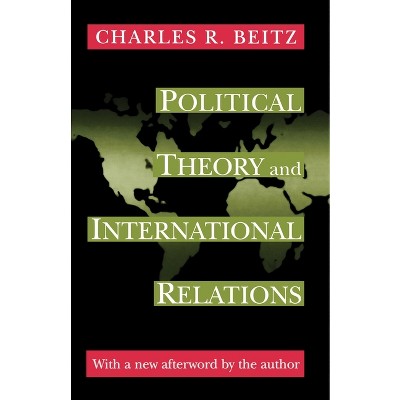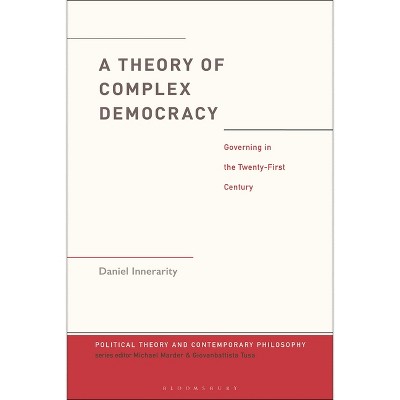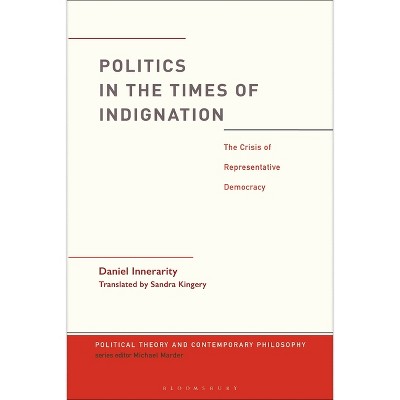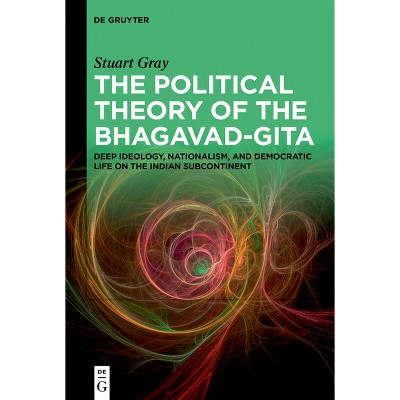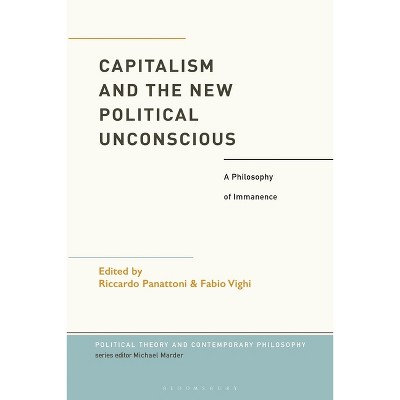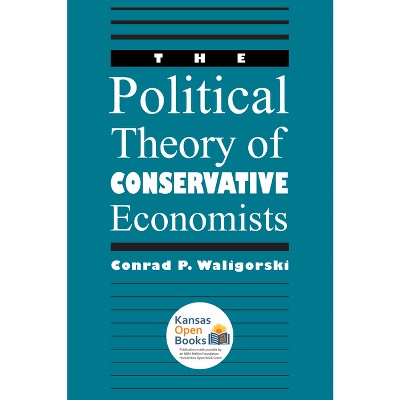The Non-Sovereign Self, Responsibility, and Otherness - (International Political Theory) by Rosine Kelz (Hardcover)

About this item
Highlights
- Drawing on Hannah Arendt, Judith Butler and Stanley Cavell, this book addresses contemporary theoretical and political debates in a broader comparative perspective and rearticulates the relationship between ethics and politics by highlighting those who are currently excluded from our notions of political community.
- About the Author: Rosine Kelz received a doctorate in Political Theory from the University of Oxford, UK, and an M.A. and B.A. in Sociology and Politics from the University of Essex, UK.
- 209 Pages
- Philosophy, Ethics & Moral Philosophy
- Series Name: International Political Theory
Description
About the Book
"In times of globalization, critiques of sovereignty have become a pervasive feature of political theory. This book investigates how forms of political association and the responsibilities we have for others could be informed by non-sovereign concepts of the self. Placing the reader in dialogue with Hannah Arendt, Judith Butler and Stanley Cavell, it engages with debates surrounding the key concepts of identity, becoming, agency and ethical responsibility - specifically in terms of a 'non-sovereign self'. Non-sovereignty highlights how thought, language, and ultimately one's very survival depend on social relationships. While non-sovereign accounts of human social life have become widely accepted, there is an ongoing debate about definitions and roles of key terms such as 'finitude' or 'relationality' and the consequences they have for political thought. Drawing on Hannah Arendt, Judith Butler and Stanley Cavell, this book addresses contemporary theoretical and political debates in a broader comparative perspective and rearticulates the relationship between ethics and politics by highlighting those who are currently excluded from our notions of political community"--Book Synopsis
Drawing on Hannah Arendt, Judith Butler and Stanley Cavell, this book addresses contemporary theoretical and political debates in a broader comparative perspective and rearticulates the relationship between ethics and politics by highlighting those who are currently excluded from our notions of political community.Review Quotes
'I would highly recommend this book to anyone interested in questions pertaining to identity, agency and ethics from a global politics perspective. This book uniquely situates us in conversation with key thinkers Arendt, Butler and Cavell and, from this vantage point, asks us to engage with these questions anew - specifically towards the development of a 'non-sovereign self.' Towards this end, I was particularly fascinated by Kelz's thought-provoking critique of Butler in terms of anthropocentrism and, following from this, Kelz's development of a framework that urges us to revisit the ways we conceptualise our relations with Others, including non-human lives.' Tina Managhan, Senior Lecturer in International Relations, Oxford Brookes University, UK
'What is the non-sovereign self? The idea is frequently used by political and social theorists but often without much clarity. In this lucid and scholarly study, Kelz carefully teases out the implicit meanings of non-sovereignty with regard to the temporal, inter-subjective and ethical dimensions of selfhood. In the process, she casts new light on the ideas of established thinkers including Arendt and Butler while insightfully connecting them to the less known work of Cavell. An instructive and thought provoking read.' Lois, McNay, Fellow and Professor the Theory of Politics, Somerville College, University of Oxford, UK
About the Author
Rosine Kelz received a doctorate in Political Theory from the University of Oxford, UK, and an M.A. and B.A. in Sociology and Politics from the University of Essex, UK. She currently lives in Asheville, North Carolina, USA.
Shipping details
Return details
Trending Poetry






